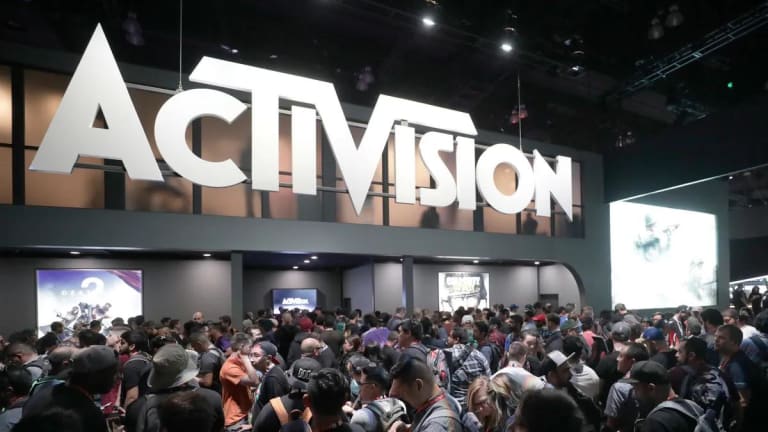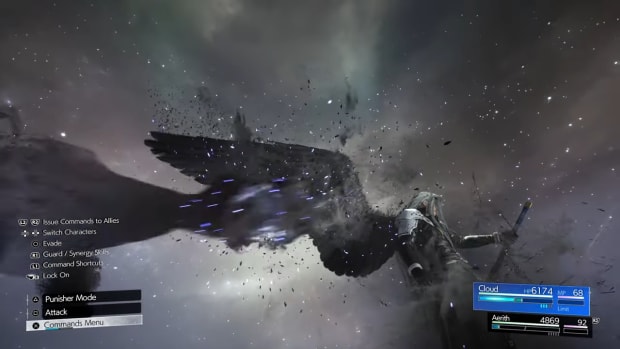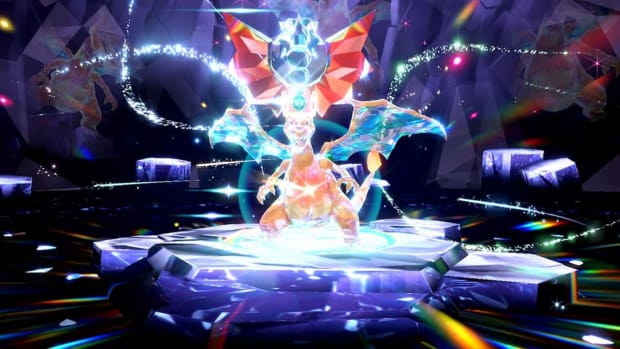
Sony seems isolated in opposition to Microsoft’s Activision Blizzard acquisition

The UK’s Competition and Market Authority (CMA) has posted written responses from Microsoft, Sony, Activision Blizzard, and six third parties to its provisional report regarding the proposed $69 billion acquisition of the Call of Duty maker by Microsoft.
In those findings, the CMA concluded that Microsoft buying the company would be harmful to UK gamers and that this deal could only be safely approved if Activision Blizzard were broken up.
However, other than Sony itself, which only has lauding words for the CMA’s “impressive” body of evidence and couldn’t agree more with the findings, no company seemed to be on board with the CMA’s opinion.
4J Studios, the developer of Minecraft for consoles, is the only third party willing to be named in its response. The company’s chairman, Chris van der Kuyl, stated:
"We have been in a fairly unique position of working as a partner with Microsoft and also as a partner of a company which was acquired by Microsoft during our tenure as the party responsible for the console development of Minecraft. We had a period of transition from the ownership of Mojang AB from its original shareholders to the current position where it is wholly owned by Microsoft. During that period, which lasted several years, Microsoft has honoured every element of the agreements that they inherited and also extended our relationship significantly to cover new formats, like Nintendo Switch, as well as many other content enhancements.
During the phase of Microsoft ownership we have never been under any pressure to favour Microsoft owned formats, indeed we were actively encouraged by Microsoft to develop unique content such as the “Mario Mash Up” pack for Nintendo formats. Microsoft have also brought significant stability and rigour to our contractual and commercial relationships and have been both fair and professional in all our dealings with them.”
Market Participant B, which remained completely anonymous, commented:
“We believe that consumers’ tastes and preferences in the video game space cut across a broad array of games and a wide variety of genres and platforms. As such, we do not believe that any title can be considered a ‘must have’ in the interactive entertainment market. In the context of this dynamic, and considering Microsoft’s stated commitment to make certain games available on all platforms, we do not believe the proposed transaction will negatively impact consumers.”
The CEO of Market Participant C, which claims to be an indie developer having worked with all three parties in the past, expressed the following:
“In my experience dealing with them over the last 25 years, Microsoft always honor their contracts and obligations. When they say that they intend to make Call of Duty content available on Sony and Nintendo platforms, I believe them and I believe it is in their interest as well as the interest of the industry.”
They also raised the specter of a potential takeover from Chinese tech giant Tencent:
“China-based giant Tencent is already an investor in Activision. If Microsoft is prevented from acquiring Activision, would the UK consumers be better served if they were acquired by Tencent instead?”
Market Participant D, “a developer and a publisher of AAA titles whose games are distributed on all major consoles (Xbox, PlayStation, Nintendo), PC and mobile”, stated that it would be too difficult to predict the exact effects of this deal. They did, however, note:
“We do not, however, expect any significant impact of the Merger on our company nor distribution of our own products. In particular, we do not expect the Merger to pose any risks to the distribution of our own games on Xbox or other consoles.”
This directly contradicts one of Sony’s arguments for blocking the deal, found in the company’s own response:
“The Transaction would substantially improve Microsoft’s bargaining position with independent developers. The competition between Microsoft and SIE allows independent developers to extract better terms and conditions from both platforms. Once SIE is foreclosed, independent developers would likely receive worse terms for their content from Microsoft than they do today. These reduced returns could, in turn, diminish independent developers’ ability and incentive to invest in high-quality new games, causing video games to become lower-quality and less immersive, harming consumers further.”
Market Participant E, which worked with both Xbox and PlayStation in the past, felt especially motivated to share their opinions, which do not show Sony in an especially good light:
“On PlayStation, we've found our sales growing stagnant with each release. This is mainly due to the fact that, despite PlayStation having the lion's share of player numbers and console sales, that share is mainly provided to larger titles from huge publishing labels, and/or developers and publishers who are willing to spend lots of money on paid marketing within the PlayStation console. This means that on PlayStation, it simply isn't a level playing field for every publisher and developer.
On Xbox, the opposite has come true over the last several years. There are numerous means of players finding your game on Xbox, including in special sections on the store, and through the Xbox Game Pass service. As a result, we've found that, despite Xbox having much smaller player numbers and console sales than PlayStation, our games sell just as well on Xbox, since more players are finding our games there. With this in mind, I've found myself of the opinion that the acquisition of Activision Blizzard can only be a good thing for smaller-to-mid sized business like ours, as it will no doubt lead to increased sales of Xbox hardware, increased subscriber numbers on the Xbox Game Pass subscription service, and thus, larger sales for businesses like ours on Xbox. Coupled with the fact that Xbox has a better ecosystem currently for players to discover new games, I can only see the acquisition being a positive for a lot of businesses like ours.
The acquisition will not all of a sudden make Xbox the dominant platform. It's far more likely that it may help to create a more level playing field between Xbox and PlayStation which, at this point in time, is sorely needed. PlayStation needs better competition, to force the platform to up its game, and this will surely help to do that.”
Finally, Market Participant F attacked Sony’s arguments throughout this whole debate and also brought up the repeated scandals at Activision Blizzard:
“We honestly found the arguments against this acquisition to be slightly exaggerated and out of proportion. We are worried that actual real competition and more innovative consumer friendly initiatives, could be potentially hindered by blocking this, by potential market leaders/competitors, who might not be ready or might believe in a different strategy, or just not compelled to change their status quo on the market.
While we do not want to point fingers at anyone's struggle to create and maintain a good culture for employees, as this is challenging for any company and has always been, we do see that a change in "scenery" with a new home at MS might be good for some of our colleague's working in the studios on the various projects.”
Sony, it seems, stands quite isolated in opposition to this acquisition. The CMA will reach a final decision at the end of April 2023 alongside the EU, which reportedly is already being swayed by Microsoft’s contractual guarantees to Nintendo, NVIDIA, Boosteroid, and Ubitus regarding their accessibility to the company’s games.



